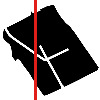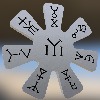HOME | DD
 arlinconio — The Post-Ottoman World in 1678
arlinconio — The Post-Ottoman World in 1678

#albania #arabia #armenia #austria #bosnia #bulgaria #croatia #egypt #georgia #greece #hungary #iran #iraq #israel #jordan #lebanon #map #moldova #romania #russia #serbia #syria #turkey #ukraine #alternatehistory #mediterranean #middleeast #ottomanempire #althist #alt_history
Published: 2022-04-12 21:38:46 +0000 UTC; Views: 17144; Favourites: 98; Downloads: 0
Redirect to original
Description
I've recently read a book, called Osman's Dream by Caroline Finkel, about the history of the Ottoman Empire. The 17th century was amazing! It's got everything - revolts, palace intrigue, assassinations, economic crises, war, decay and revival. It's more exciting and gripping than most fiction I've read. There were some events at the time called the Celali Rebellions, involving local leaders in Anatolia rising up against the central government. The one that attracted my attention in particular was that led by Abaza Hasan Pasha who, while the main Ottoman army was occupied in the West, made it as far as Bursa before being defeated. The book quotes Abaza (i.e. Abkhazian) Hasan as saying 'they shall have Rumeli and we Anatolia'. So I immediately thought of an imaginary map, of course.
The story is that Hasan wins the Bursa siege, then takes Uskudar and Canakkale. He proclaims himself sultan in Anatolia as Hasan I (the proclamation referred to in the map title, bottom-left corner). The dominoes start falling then. Western rivals, mainly Venice and the Austrian Habsburgs, take immediate advantage. Arabs, cut off from power in the Imperial framework, rise up. Egyptians, in the richest part of the Empire, seize the opportunity. Vassals at the edges of the Empire find themselves independent whether they want to or not (most do!). And then there are the Safavids in the East, fresh off a great renaissance period under Shah Abbas, who start moving in on a number of fronts.
So obviously there are competing factions at this stage. In Arabia it's a Damascene family that gains hegemony, in Egypt a local warlord etc. But the bigger conflicts are between the emerging countries - borders, trade routes, religious prominence. And, while Ottoman resurgence is checked from all sides, there is a real danger of the Safavids replacing the Ottomans as the regional power. So clearly there is a need for compromise.
The Abazids, Levantine, and Egpytians, known collectively as the Post-Ottoman Majors (POMs), newly free and led by men eager to present themselves sovereign, are weary of being restricted. The only authority any of them would submit to is the Caliph. So the POMs got together, found an Islamic scholar descended from Muhammad, and made him Caliph. But this Caliph didn't have any practical power (the POMs wouldn't allow it!), except in one respect: aside from high-minded discussions on esoteric religious concepts, this Caliph led a commission that adjudicated in conflicts between the POMs. In essence, they created their own UN. The Caliph is permanently settled in Nicosia where all three POMs can supervise the process - all three keep rather large permanent armies in Cyprus to ensure nobody can simply take the Caliphate over by force. Other Muslim countries joined this framework later. Under this legal framework, the new countries determine their new territories and put together a defensive alliance that keeps the Safavids at bay.
Related content
Comments: 5

👍: 0 ⏩: 1

👍: 0 ⏩: 0

👍: 1 ⏩: 0

👍: 1 ⏩: 1


















